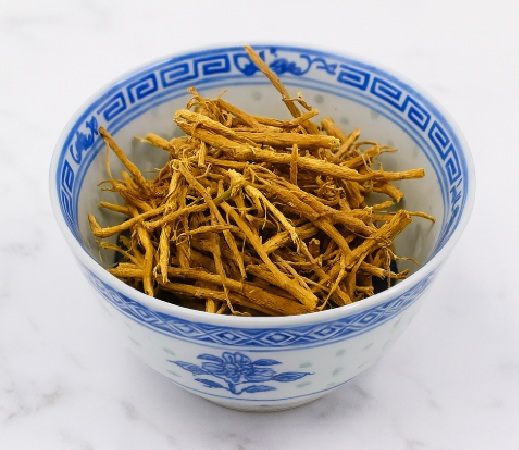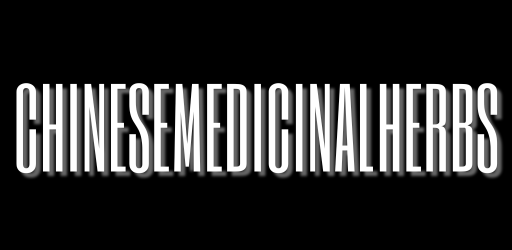Cynanchum Root Chinese Herb

Cynanchum Root (Bai Qian): A Transformative Herb for Cough, Phlegm, and Lung Qi Rebellion
Introduction
Cynanchum root, known as Bai Qian (白前) in Traditional Chinese Medicine (TCM), is a classic herb used to direct rebellious Lung qi downward, transform phlegm, and stop coughing. Its balanced nature—neither too warming nor too cooling—makes it ideal for a wide range of respiratory conditions. From wheezing and productive coughs to difficulty breathing, Bai Qian helps restore the natural downward flow of Lung qi and clears airway blockages caused by phlegm.
What Is Cynanchum Root?
Bai Qian is the dried root of Cynanchum stauntonii or Cynanchum glaucescens, two plants in the milkweed family. In TCM, it is classified as acrid, sweet, and slightly warm, and it enters the Lung meridian.
This herb is especially prized for harmonizing the Lungs: it suppresses cough while ensuring phlegm is expelled properly, making it suitable for both excess and deficient conditions involving phlegm accumulation.
Health Benefits of Cynanchum Root
Directs Rebellious Lung Qi Downward
Used for wheezing, shortness of breath, and coughs where Lung qi is rising instead of descending.
Transforms Phlegm and Clears the Airways
Effective in treating productive cough with copious, sticky phlegm due to phlegm-damp or phlegm-heat accumulation.
Stops Cough in Both Acute and Chronic Cases
Appropriate for chronic bronchitis, asthma, and lingering respiratory infections.
Balances Warming and Moistening Herbs in Formulas
Its neutral thermal nature makes it a versatile addition to both warming and cooling formulas.
Assists in Treating Wind-Cold Invasion with Cough
Often used when an exterior pathogen invades and causes cough with phlegm but without severe heat signs.
How to Use Cynanchum Root
In Decoctions for Cough and Wheezing
Use 3–9 grams per dose in formulas such as San Zi Yang Qin Tang or Er Chen Tang. Commonly paired with herbs like Bai Jie Zi, Ban Xia, or Xing Ren.
In Syrups or Tablets for Lung Support
Processed into liquid or capsule form for ease of use, especially in treating chronic bronchial conditions.
In Pediatric Cough Formulas
Included in gentle formulas to redirect Lung qi and resolve phlegm in children with weak digestion.
As a Balancing Herb in Mixed Formulas
Helps regulate strong dispersing or warming herbs to prevent over-drying the Lung.
Where to Buy Cynanchum Root
You can find Bai Qian at the following places:
- Traditional Chinese medicine pharmacies
- Online herbal suppliers such as Mayway, iHerb, or Amazon
- Stores specializing in respiratory or Lung-related herbal remedies
Look for:
- Dried root slices or shredded segments with a slightly sweet aroma
- Clean, sulfur-free, naturally dried herbs
- Certified organic or lab-tested batches for purity and safety
Are There Any Side Effects?
Cynanchum root is generally safe when used as directed. However, it should not be used in dry coughs without phlegm or in cases of yin deficiency with heat, as it may be too drying.
It is not suitable for individuals with severe Lung yin deficiency (dry mouth, red tongue, night sweats). Always consult a licensed TCM practitioner before long-term use.
Conclusion
Cynanchum root, or Bai Qian, is a trusted herb in TCM for managing coughs, wheezing, and phlegm accumulation. Its ability to direct rebellious Lung qi downward while gently transforming phlegm makes it an essential herb for restoring proper respiratory flow—whether in acute infections or chronic bronchial conditions.
FAQs
Can I take Cynanchum root daily?
It can be taken regularly for a short period during treatment of respiratory conditions, under practitioner guidance.
What does Cynanchum root taste like?
It has a mildly sweet and acrid taste, typically masked when decocted with other herbs.
Is Cynanchum root safe for children?
Yes, when prescribed as part of a pediatric formula by a licensed practitioner, it is commonly used in childhood coughs with phlegm.

